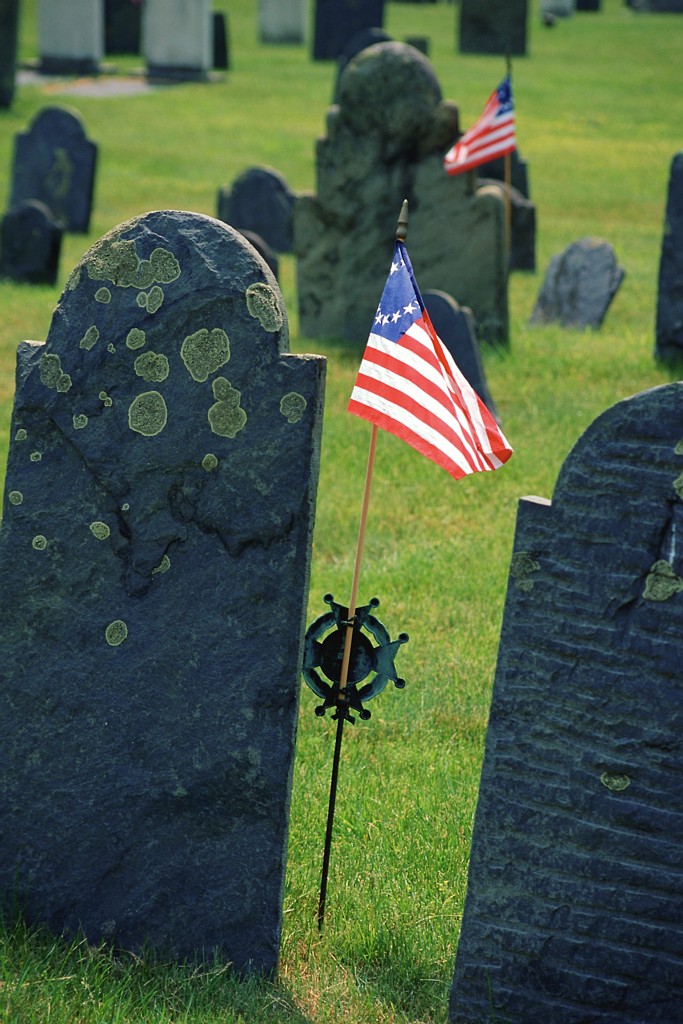My husband was the fifth generation in his family born in Saline County, Missouri. After we moved to Missouri in 1979, he and I – and later our children – spent several Memorial Day weekends helping his mother gather flowers and vases to decorate the graves of grandparents, great-aunts, and cousins fourth-removed in the local cemetery. It seemed half the cemetery was related to their family in one fashion or another.
And as we worked, we heard their stories.
I can’t say that I remember all the Hupp, Rector, Sappington, Elsea, Parks, and Long family stories, but I learned a sense of place and history as we worked on Memorial Day weekend. Many of the stories were reinforced over Thanksgiving and Christmas dinners over the years.
- How my husband’s distant ancestors had moved to Missouri from Virginia early in the 19th century.
- How they had farmed the land around Marshall, MO, until some of them moved to town and others moved to California.
- How small communities at crossroads in the county had blossomed and then disappeared.
- How transportation evolved from railroad to motorcars. (My husband’s grandfather was the first person to make it from Marshall to Kansas City – a distance of 90 miles – and back in the same day.)
But all their stories are of places and times when the family lived in the United States. When I ask my husband what his national origin is, he says, “American.” His family’s story of immigration from England and Germany has long since vanished from memory. It means nothing to my husband.
My family history has similarities to my husband’s, but is different in many respects.
I was born in Richland, Washington, a town that essentially was built after World War II. There had been a town called “Richland” before the war, but the federal government evacuated it to make way for part of the top-secret Manhattan Project. Because all the town’s residents were newcomers (we even lived on Newcomer Street for awhile), we didn’t have relatives buried in the local cemetery. Decorating graves on Memorial Day was not part of my tradition growing up.
My family didn’t have an old family homestead to visit in town, no local grandparents to visit for Sunday supper. Our family lore originated in places far away.
- In Nebraska, where my father’s family farmed, but for fewer generations than my husband’s family farmed in Missouri.
- In California, where my father’s parents moved during the Depression. My dad grew up not far from where my husband’s mother grew up, but the families got there in different times and for different reasons.
- In Oregon, where my mother’s father’s family had been since 1848. (My historical novel set in 1847 starts with a man riding horseback as he begins his trip to Oregon. I actually have an ancestor that set out from the Midwest for Oregon on horseback in 1848 – an uncanny parallel I learned from a family genealogy.)
And mixed in with these stories of domestic migration, my family still told stories of immigration to the United States.
- “That china cupboard and all the dishes came round Cape Horn from Ireland. Great-Aunt Rose had them till she died.”
- “He [my mother’s grandfather] was a little old Scotsman who danced a jig with a pillow on his head.”
- “He [my father’s ancestor] got off the boat from Denmark, dropped his bag in a boarding house, went out to find a job, and got lost. Never did find his way back to the boarding house.”
Our sense of self comes in part from the stories we inherit.
What stories of past generations does your family tell? Is there an older relative you should interview to find out your stories so they will not be lost?




Maybe it’s because I have a degree in history, but I enjoy these stories about where people came from, especially people I know. The more you find out about your family, the more tales you will have to tell. Keep up the good work.
How true! Thanks, Bob. (Interesting that we wrote on similar themes this week. Great minds think alike.)